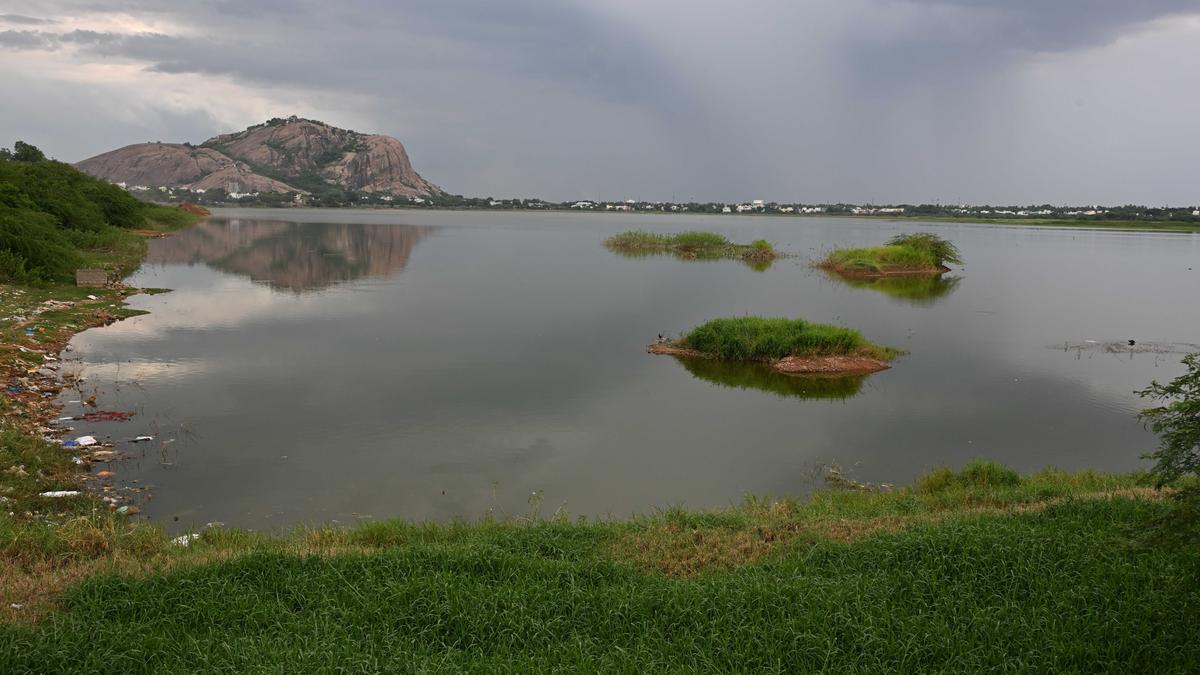
Tamil Nadu Land Consolidation Act, a law mired in controversy Premium
The Hindu
Tamil Nadu Land Consolidation (for Special Projects) Act, 2023: While Tamil Nadu government sees Act as a necessary step to streamline land acquisition for infrastructure projects, law has drawn sharp criticism from environmentalists, farmers’ associations, and civil society groups, who fear that it could further erode the State’s water bodies and undermine rights of local communities.
The Tamil Nadu Land Consolidation (for Special Projects) Act, 2023, came into effect on October 18 , sparking controversy. While the State government sees the Act as a necessary step to streamline land acquisition for large-scale infrastructure projects, the law has drawn sharp criticism from environmentalists, farmers’ associations, and civil society groups, who fear that it could further erode the State’s already dwindling water bodies and undermine the rights of local communities.
The Act aims to simplify the consolidation of government land for “special projects,” which include infrastructure, industrial, agricultural, and commercial developments requiring no less than 100 hectares. Under the law, land, even if it contains water bodies, can be acquired for special projects by entities in exchange for land elsewhere.
Also read | Anbumani warns T.N. govt. against ‘privatising’ waterbodies
On paper, the Act is presented as a way of protecting water channels that may change course over time or pass through private land. Critics argue that in practice, however, what is actually a crucial environmental concern could become an unchecked opportunity for land acquisition and privatisation of the State’s water bodies.
What was more worrying was that the Act was passed quickly with little discussion or scrutiny. This raised concerns on why the government was in a rush. The Minister for Revenue and Disaster Management, K.K.S.S.R. Ramachandran, defended the Act, stating that it primarily aims to tackle the inefficiencies and delays created by the fragmentation of land laws. However, activists argue that the provisions in fine print leave far too much room for potential misuse.
Also read | State government urged to repeal Land Consolidation (Special Projects) Act
The provisions allowing the government to designate projects as “special” and expedite land acquisition are particularly concerning. Under the Act, any project requiring more than 100 hectares of land can be approved for consolidation, even if water bodies are located within the proposed land. This could pave way for large infrastructure projects to proceed unchecked, with little regard for environmental impact or the interests of local communities. Further, the public has little say over which projects are designated as “special.” The decision rests entirely with the government, as public hearings only occur after the project has been approved.

The Karnataka government has drafted a comprehensive master plan for the integrated development of Kukke Subrahmanya temple, the State’s highest revenue-generating temple managed by the Hindu Religious Institutions and Charitable Endowments Department. The redevelopment initiative is estimated to cost around ₹254 crore and aims to enhance infrastructure and facilities for devotees.












